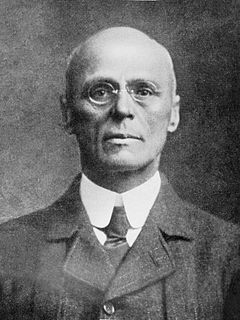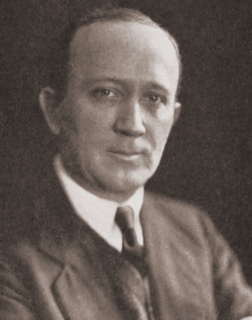A Quote by Herman Gorter
Moreover, in Russia there was an enormous amount of landed property to be divided, large estates, crown lands, government land, and the estates held by the monasteries.
Related Quotes
We may... affirm that the balance of power in a society accompanies the balance of property in land. The only possible way, then, of preserving the balance of power on the side of liberty and public virtue is to make the acquisition of land easy to every member of society; to make a division of the land into small quantities, so that the multitude may be possessed of landed estates.
Is this not true--That in proportion to the value of their estates the extremely wealthy pay far less taxes than those of moderatemeans? Compare the amount paid by millionaires with the amount paid by ordinary citizens. I believe that in proportion to their estates they pay less than half as much as ordinary citizens, whereas they ought to pay more.
No man, however benevolent, liberal, and wise, can use a large fortune so that it will do half as much good in the world as it would if it were divided into moderate sums and in the hands of workmen who had earned it by industry and frugality. The piling up of estates often does great and conspicuous good.... But no man does with accumulated wealth so much good as the same amount would do in many hands.
We are the heirs of the ages; but the estate is entailed, as large estates frequently are, so that while we inherit the earth, the great round world which is God's footstool, we have only the use of it while we live and must pass it on to those come after us. We hold the property in trust and have no right to injure it or to lessen its value. To do so is dishonest, stealing from our heirs their inheritance.
Unlike despotisms, modern democracies are not supposed promiscuously to accumulate property and then charge their taxpayers to maintain it. But that is what they do. Governments are always trying to extend their responsibilities and their estates, and it is very hard for parliaments to reign them in.






































